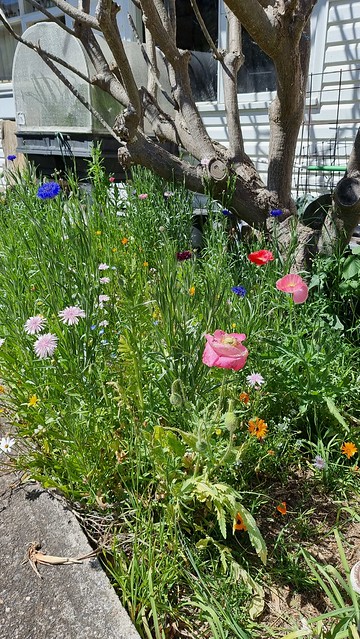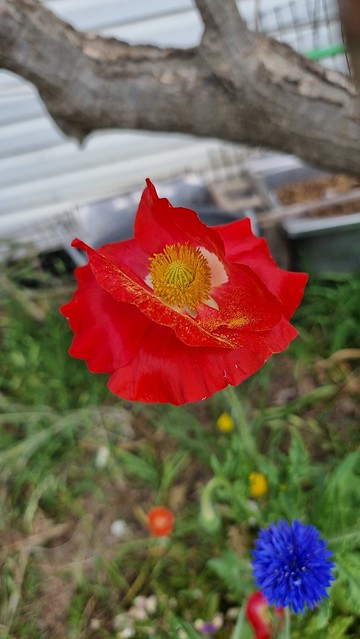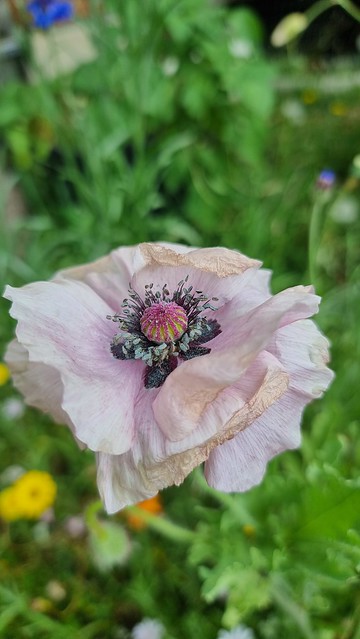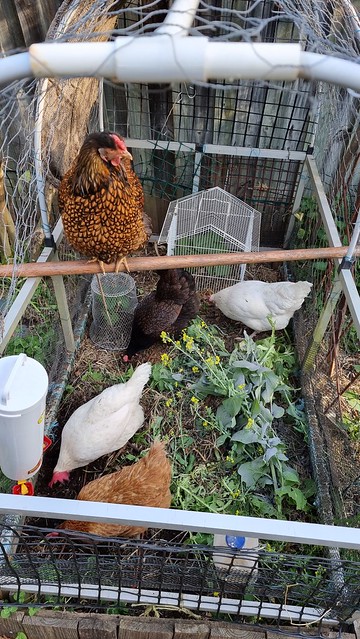It's time to talk about vaccines.
Many people in permaculture have issues with the government, with corporate medicine, with pharmaceuticals. They feel that any mandates towards masking or vaccinations are railroading them, and they resist any and all control that any large-scale organisation brings to bear.
There's an element of rebellion in permaculture that is intrinsic to the worldview, which is, after all, a rejection of the capitalist economic system and the way it's seeped into our social values.
That said, there can certainly be a point at which rebellion becomes rebelling purely for the sake of rebelling. Basically, rebellion because that's what you do against corruption, and all governments and their works are corrupt. (Think: "I renounce the devil and all his works!")
I actually think this misses the mixed blessings of our society. That we are a society that does need to rely on big government in some things, on large-scale equalisers, because on the individual level a great many people are instinctively selfish. Me, mine, myself. I hold a balanced belief in both the ability of people to do great good, and the evils that lurk in our hearts. Finding a balance on these views is difficult, a delicate navigation, and I work to hold space for people of differing views. (I don't always succeed.)
The truth is that permaculture people are, well, people, with all the kindness and thoughtfulness, and issues and selfishness of the breed. Yes, there is certainly an encouragement to care for people and share fairly in permaculture, but these ideals can also be selfish when wrapped around with 'me, and those who think/act like me'.
On a practical level, the government is best situated to enact large-scale control and maintenance of situations which cannot be managed at the individual level in our modern society. Yes, there are individuals, family units, communities that have opted out of the capitalist economic system and that society, but the hard truth is that not everyone can do that. We have too many people alive and living in the world, many of them too specialised to their time and place and mentality to change on a dime. And in our modern world, many of us are alive and living the lives that we are because of the system that we exist in. We cannot "renounce the devil and all his works", because "the devil and all his works" are in us as well.
This is a hard truth to accept. Our mentality is so accustomed to painting ourselves as the hero, we don't always notice when we might become the villain - even if only in a scene or two. Such is the nature of humanity. One demon is another's angel.
Too deep, perhaps?
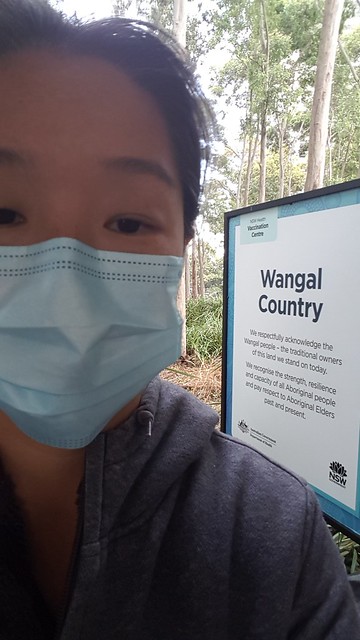
Let's s talk about the ethic of Fair Share.
The original framing of the ethic was surrounding the idea that our consumption should have finite limits. That we should - as far as is possible - endeavour to limit our consumption, such that the sharing of the earth and its finite resources is fair - or at least fairer.
On the surface: fairly sharing involves providing vaccines to our neighbouring countries who don't have the same wealth and opportunity to develop and manufacture vaccines as we do. But deeper and more relevant for the permaculturist, it involves being resolved and willing to take measures to ensure that we don't deplete future resources by our decisions today.
It's one of the reasons we have the principles catch and store energy (at the highest possible level) and use and value renewable resources . The memory phrase for produce no waste - "a stitch in time saves nine" - also builds in the concept of enabling better use of resources. If we can save time and energy and resources in prevention, isn't that far better than a cure?
A vaccine is prevention - as much as eating healthily is prevention, as much as a seatbelt is prevention, as much as hardhats on building sites are prevention, as much as designing a house for sustainability is prevention.
Originally, I was going to describe vaccination as 'the stitch in time that saves nine'. But I think that's an incorrect use of the paradigm.
Vaccines are not a cure-all or a fix, and nobody should be saying they are. However, in the overall scheme of our health, vaccination is one more brick in the wall of our defences against sickness, one more obstacle for the virus to get through, one more point on the scoresheet in favour of survival, of life, of opportunity and potential and second chances. They are one more layer in the 'swiss cheese layered defence' against the debilitating sickness that is COVID-19.
For an example of the Swiss Cheese Pandemic Defence, I recommend reading this article from the New York Times.
Vaccination is one more layer in the defence, alongside wearing masks in close quarters, avoiding close quarters where possible, not congregating in large groups, and keeping track of where you've been.
Acknowledging these as useful defences takes nothing away from permaculture ethics and principles, health and wellness, or our need to work at improving our resilience as individuals and as humanity. These things work together with vaccination to give us a better chance against the virus - individually, as people likely to get sick, and as a community, as a carrier and potential location for mutation of the virus into something more infectious and more deadly.
Using every defence we have against the virus is valuing diversity.
Taking the vaccine is also valuing the diversity of our population. Not just those who can grow their own food and afford to eat healthy, who have good immune systems, who can learn about lockdowns and testing and case numbers that are given in English (not even Auslan anymore), and have the transport to easily get to a vaccination hub, but those who can't.
The immunocompromised, the multi-generational ESL family, those with less money or living in a food, transport, or green spaces "desert", those from indigenous backgrounds who have far, far less historical reason and current experience to trust the government and medical experts - we don't see these people up here in the North side of Sydney that often, do we? They are people whose voices and experiences we often don't hear or see face to face, because they live and work and struggle a long way from the leafy suburbs and work-from-home and educated backgrounds that we experience up here.
But if they aren't our local community, they are still our community of Sydneysiders - of Australians.
And when one of them falls sick with COVID, it will put one more small weight onto the stretched health system.
What catching COVID-19 means is one more patient for the hospitals, one more pressure on our strained health system, one more person at risk of what is being called 'long COVID' - a long, debilitating recovery that has lasted for more than a year in some of the early afflicted. Once-healthy people now struggle to stay upright for a couple of hours a day; marathon runners now find themselves breathing heavily just to cross the street. They are likely to end up being unable to function at the capacity they once did, instead struggling along at life.
The vaccine is both one more layer of defence against catching the virus, and one more layer of defence against the debilitating results of getting the virus.
Now, catching COVID-19 is not a moral or ethical failing, and we should disdain to see it as such. But to be vaccinated in light of the consequences of catching COVID, is to act with the ethic of 'fair share' in mind. We are using an available resource in the now to take one step further away from something that will put undue burden on us, on our community, on our society in the future. We are "limiting" ourselves in the present so that we will not be burdening our society excessively in the future.
May I encourage us to make use of one more defence against COVID by getting vaccinated, and, in doing so, to value the diversity of our Australian community, the diversity of preventative measures against getting COVID, and to practice the ethic of Fair Share by reducing the likelihood of us having to take up valuable resources in the future?










